Winter, cold evenings... Outside the window, white flakes of snow are spinning slowly, slowly, as if in a dance... How nice it is on days like these, wrapped in a warm blanket, to sip aromatic tea from a samovar, the taste of which is in no way inferior to tea prepared in an electric kettle.
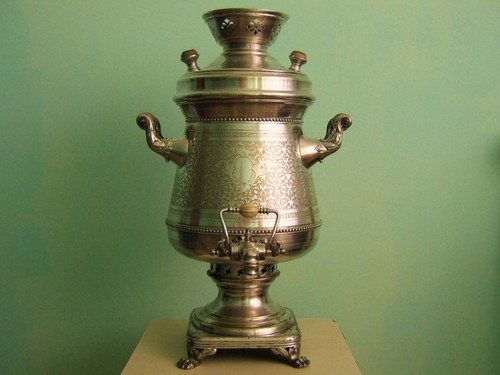
A samovar is the embodiment of family comfort, a home, which is quite rare these days. Our great-grandmothers deeply valued and cherished this relic at home so that they could enjoy tea with their family and interesting conversations. Such moments, moments of warmth, harmony in the family are simply priceless!
If you inherited this “cute friend” from your great-grandmother, then you are truly lucky! But there are often cases when a samovar becomes covered with an unattractive coating and loses its natural radiance.
Such situations confuse a person, forcing him to look for effective ways to solve this problem. To cleanse the symbol of the Russian spirit and holiday from contamination, you can purchase a special cleaning agent at a hardware store. Do not panic if it is not possible to purchase funds.
What should you remember when cleaning a samovar?
If you don’t know how to successfully deal with gray-green plaque and other contaminants on a samovar, then find out the following details:
- The material from which the samovar is made;
- Product service life.
Since time immemorial, our great-grandmothers have cleaned this rare thing with river sand or chalk so that it shines and looks incomparable. Of course, it will reflect a mesmerizing shine, but scratches will definitely not decorate such a product.
Cleaning the inside of the samovar
Do you dream of enjoying the taste of aromatic tea framed with sprigs of mint with a bagel on long winter evenings? Or maybe you like tea with notes of berries? To ensure that your tea party does not fail and brings only positive impressions, take care of cleaning the inside of the samovar in advance. It is strictly not recommended to use chemicals that can harm human health to clean the rarity. But folk remedies work great in this matter.
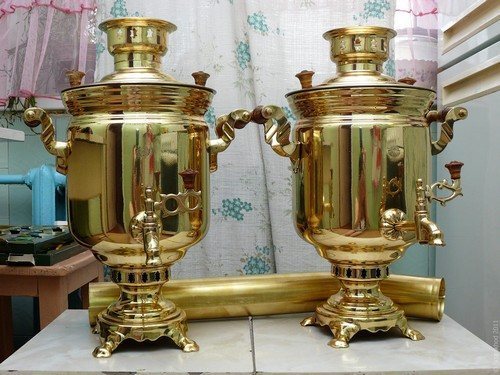
First, start cleaning the inside of the samovar. To remove scale, it is advisable to use the following old-fashioned means:
- Improvised means. Vinegar is a great helper for getting rid of dirt. All you need is to fill the samovar with acetic acid and water and heat the solution to 60 degrees. Wait an hour. During this time, the vinegar will corrode the limescale, and it will be removed from the walls of the samovar.
- Citric acid. Will provide invaluable help in cleaning the rarity. To do this, dissolve 30 grams of acid in water. Pour the resulting solution into the samovar. Boil water in the samovar and move the product aside for 12 hours. Lemons can serve as an excellent alternative to the usual acid.
- Potato peelings. Perhaps this method will seem gentle or blasphemous to you, but the result is not long in coming. The simplest, most accessible way is to wipe the inside of the samovar with potato peels.If nothing good comes of this, boil a kilogram of potato skins in a samovar. After two hours, thoroughly wipe the inner surface of the samovar with a sponge in soda.
- Products designed to remove plaque. Give preference to liquids for cleaning teapots. Beware of gentle washing machine cleaning products, otherwise it may turn out to be a nightmare for you. In any case, harm to health cannot be avoided.
How to clean the outside of a samovar?
Previously, the proven abrasive for cleaning a samovar was river sand or brick dust. But you may be completely disappointed when you find out that they can leave obvious scratches.
In the age of modern technology, in our developed time, there are many other methods to make a “pot-bellied pet” shine. Is the contamination insignificant and the product is not in such poor condition? Then turn to the help of folk remedies.
Cleaning copper products.
If a copper device is no longer pleasing to the eye and a gray-green coating has formed on it, then immediately begin removing it. After all, such plaque poses a serious threat to your health. The list of proven recipes is endless.
You can prepare a special abrasive consisting of flour, coarse salt and vinegar. To do this, all the ingredients are combined with each other and it is with the resulting mixture that the device is cleaned. Finally, polish the product with a soft cloth to bring out the shine.
To give the samovar a decent appearance, regularly wipe it with a slice of lemon, and remove unsightly deposits with a brush. Regular chalk is perfect for these purposes.But if you are afraid of scratching the delicate surface, then it is better to use concentrated acetic acid, which will give the product unsurpassed smoothness;
Cleaning brass fixtures.
To ensure that your favorite device retains its attractive appearance and immaculate cleanliness for a long time, do not store it in a room where humidity is high.
Note! Household chemicals are what can actually ruin your samovar. After all, brass is nothing more than an alloy of copper and zinc, which is susceptible to the aggressive effects of cleaning agents.
“Pot-bellied Uncle” can be easily cleaned with ordinary household products that can be found in every home. To clean brass fixtures, it is ideal to use ammonia or oxalic acid. These two products effectively remove dirt from the surface without leaving scratches.
After 5 minutes, carefully rinse the solution off using water and baking soda to neutralize any remaining acid.
To clean the outside of the brass “beauty,” GOI paste will do. It will gently clean the product, giving it a delightful shine.
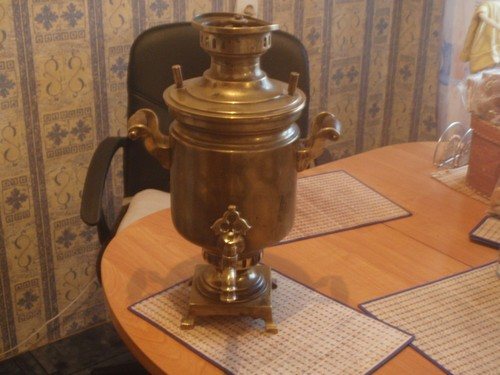
Tactics for cleaning a stainless steel samovar.
Over time, the surface of the samovar becomes dull, fades, becomes stained, and it seems that such a beauty has not been cleaned for a long time.
Stainless steel is a low-maintenance material, so you can use ordinary household chemicals for cleaning. The outside of a stainless steel samovar can be cleaned with gels, powders and other means. Just don’t even think about cleaning the inside of the samovar with household chemicals!
Of the available means, ordinary table vinegar is more acceptable. After cleaning, rinse the product thoroughly and polish it with a soft cloth.Gentle GOI paste will help remove dirt from a brass device.
Polishing a samovar with your own hands
To make the samovar shine, complete the last step - wipe the surface with a soft cloth with lint, which will do the job perfectly.
Egg whites and sodium hydrochloride will help restore the former beauty of a metal device.
The samovar is a true rarity of our time, so take care of it like the apple of your eye. Treat it carefully, with care, with trepidation, so that it will serve you for quite a decent period of time!
Delicious tea from a samovar that exudes a pleasant aroma - let it create an atmosphere of comfort and harmony in your home!


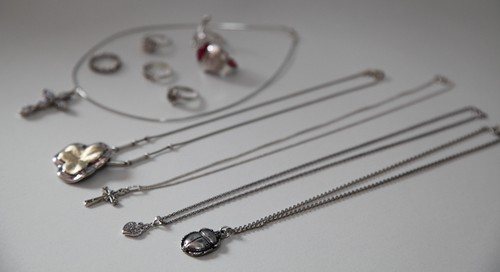




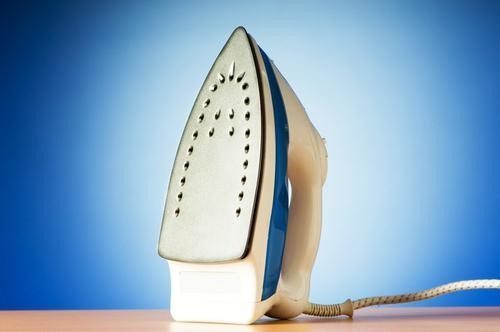
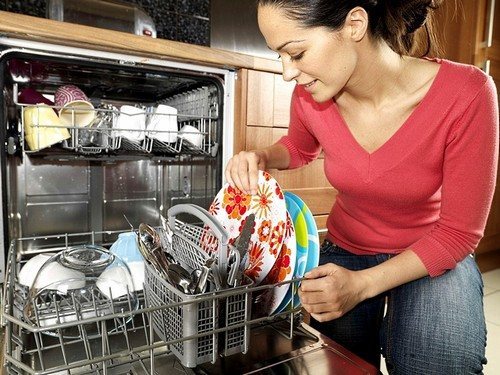

This is the article of my dreams! On the weekend I will definitely start cleaning my samovar. And then the guys from the samovar.ru store, when I bought the samovar, explained how to care for it, but even six months have passed, I don’t really remember .. and I wouldn’t want to mess it up) thanks again for the detailed description.